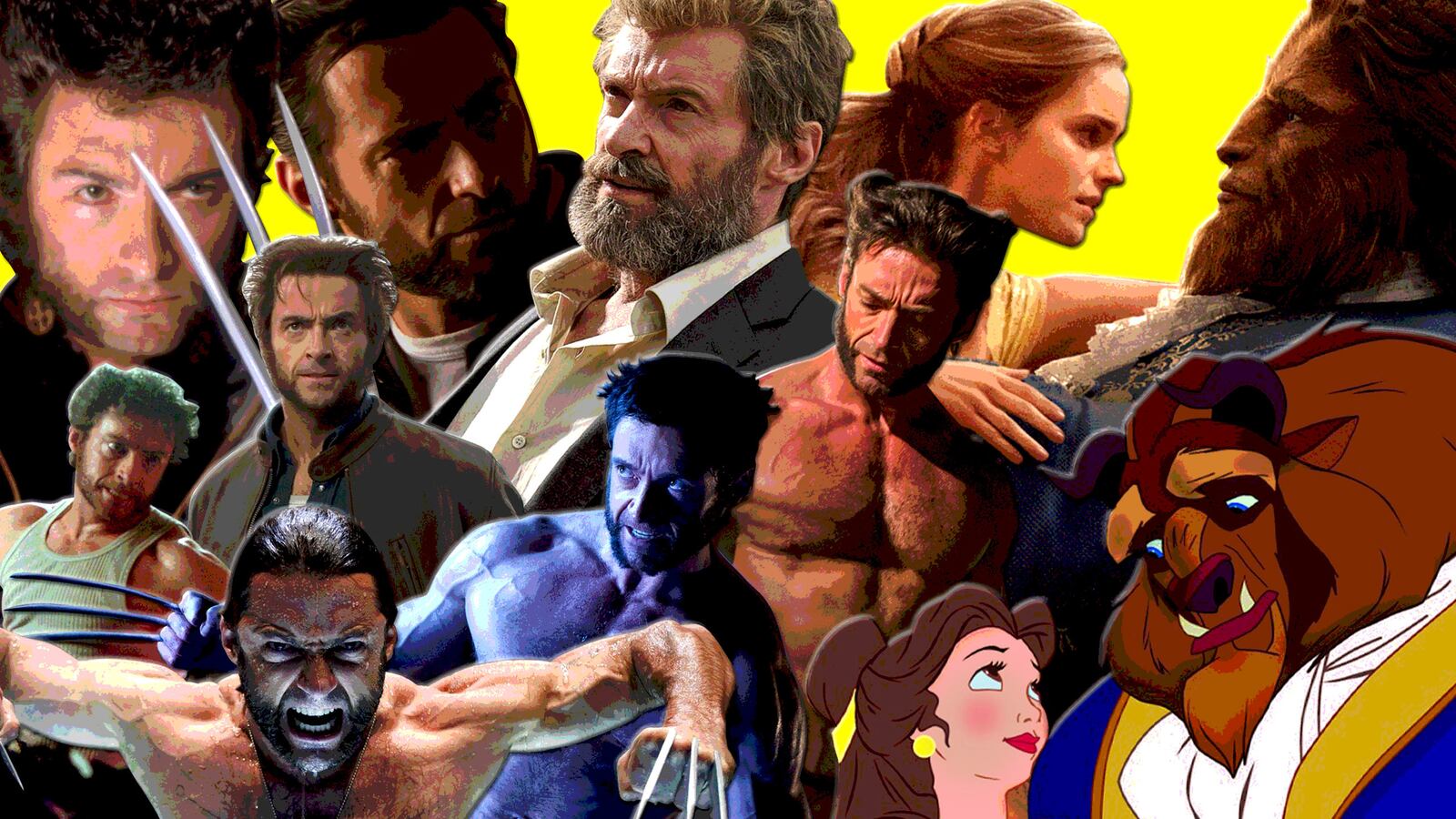Here’s the new news: Nothing’s new. Not new, true, but true. Just gander at the movie marquee, at what’s on view, nothing new. The podium of box office hits includes resurrections of a malevolent gorilla in Kong: Skull Island, the IRL reanimation of Disney’s classic Beauty and the Beast, a check-in on a few dodgy addicts in T2: Trainspotting and also Wolverine, a superhero with more franchises than most fast-casual restaurants, in the midst of a mid-life crises in Logan.
Much has been written, often disparagingly or at least despairingly, of the paucity of new ideas and franchises, endemic to cinema. In the past decade or so, at least since the runaway success of Harry Potter, movies and books have become ouroboros money makers for young adults, often to the benefit of film but the detriment of literature. These days it is the parents of the younger ones whose childhood comic book collection fantasies are tended to with the dark ministrations of Marvel and DC. Regardless, there’s nothing new to see here. It’s just theme and variation.
This has, one imagines, to do with the innate conservatism of Hollywood, which would rather double down on proven winners than go all-in on a newbie. And any way you cut it, innate conservatism is depressing. But, as I sat through Emma Watson—OMG it’s Hermione all grown up!—cavorting through her provincial town in the Beauty and the Beast remake, the only solo middle aged man in a theater full of moms and toddlers, it was not despair that met me but the bittersweet pleasure of a high school reunion.
There were so many emotions and thoughts at that moment. I wondered, for instance, whether the cool boredom of reality will ever be enough for the children who surrounded me. Could their eyes—obscured behind 3D glasses as Disney’s imaginary world of washerwomen, feral gentleman, and comedic homoeroticism leaped out at them—ever be content with the spectacle of ordinary life or the imagination-heavy work needed for reading? I, for instance, grew up with the flat animation of the original Disney Beauty and the Beast and Aladdin and, because Disney is a bunch of sickos, All Dogs Go to Heaven, which was like Faces of Death but about dogs and for children. Nevertheless, whatever emotional resonance those films had—fear, love, ennui, weltschmerz, han, agita, duende—they had to cross the bridge of imagination. But these wolves—you know, the ones that chase Belle’s dad in the forest—they were so real and so so scary, all the dots were connected, from the movie theater seat straight to adolescent psychotherapy. This movie brought to you by AACAP: The American Association of Childhood and Adolescent Psychiatry.
But the film, or films, to which my mind constantly returned as I watched this and then Logan and then Kong and T2—and now as I gird myself for a short film in which the two young children from Love, Actually, are reunited as adults—is Michael Apted’s stupendously long-running documentary project, the Up Series.
If you haven’t seen it, you should. At least for a while, forego binge-watching Netflix shows, and do just that. Over the course of eight films, shot at seven-year intervals, filmmaker Apted captures the lives of 14 British school children in a series that began in 1964 and whose next installment will be 63 Up and shot in 2019. What began as a study in the predetermination social class imbues on life outcomes has turned into something else entirely. It has become not about class but about life, the passage of it, the beauty of it, the sadness of its valleys, how rare the peaks are and how vast the plains.
As the subjects—some of whom have declined to participate in the film as the years have stretched on, though many have remained—are tumble-dried by life, one can’t help but feel overwhelming tenderness for how they’ve aged and changed. Some have lost children, others their place in the world. They’ve been beset by illusion and also disillusioned, abused and disabused, done well by and not so much. This is theme and variation, too.
So sitting in a darkened theater, I don’t bemoan that mine eyes hath seen the glory of the passing of these franchises before. Just a sort of sad noticing that we’ve all changed and aged. We’ve become what we always were. Like old men, our ears and noses have gotten bigger. Beauty and the Beast has gotten sweeter and scarier. Kong: Skull Island, which is terrible, is simply the logical extension of the embryonic idiocy of the previous iterations. In Logan, Wolverine is finally the grim Western hero he always was, just this time the genre suits him. T2: Trainspotting, being the update 20 years on from the original adaptation of Irvine Welsh’s novel, is awash in the flabby, melancholic decline that begins in our twenties and ends only in our death. No, these aren’t new friends, but they’re old ones we meet again and in them we see ourselves aging, too. Now, that’s not a sight anybody—except perhaps Michael Apted—is eager to chronicle. But it is true and it is life and so I say, encore.






